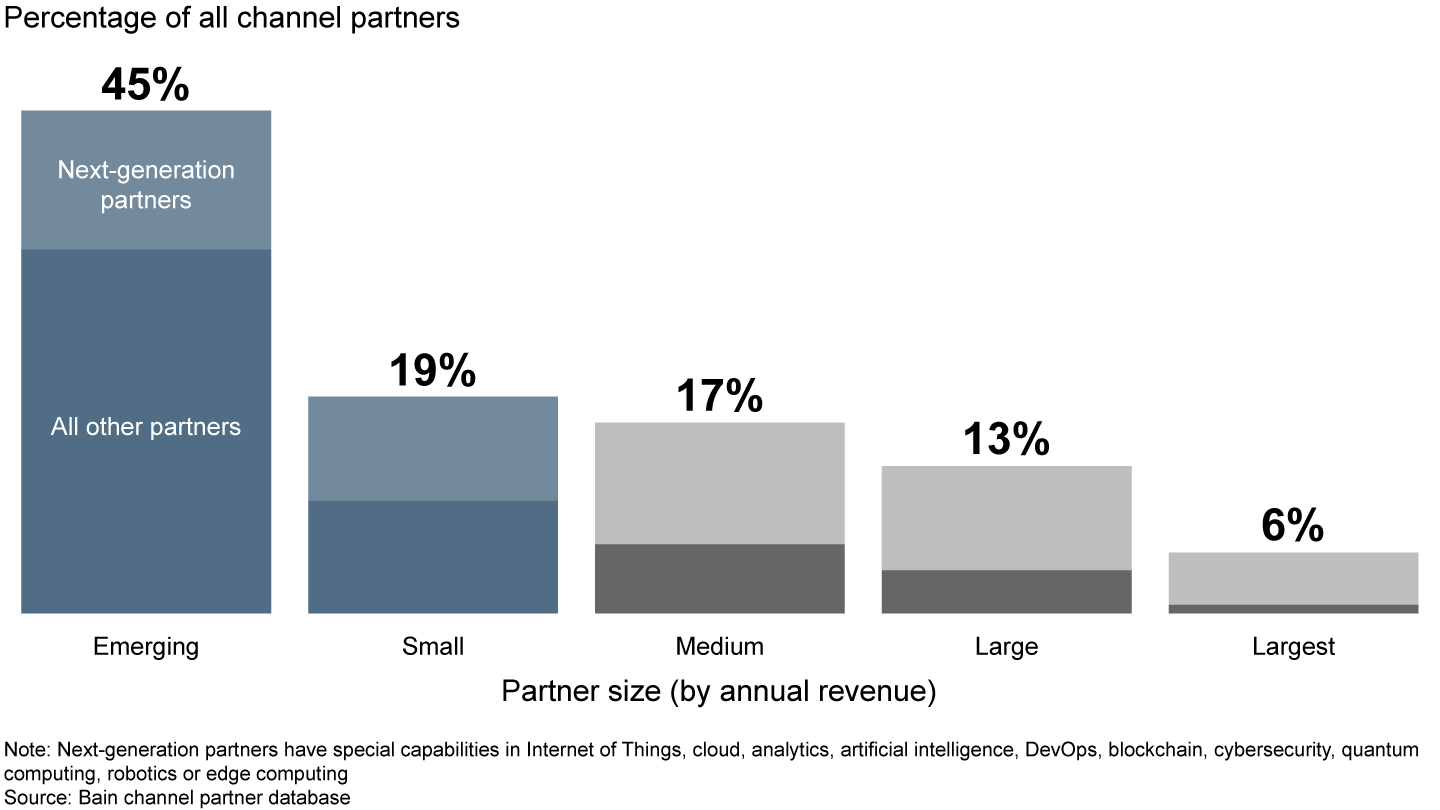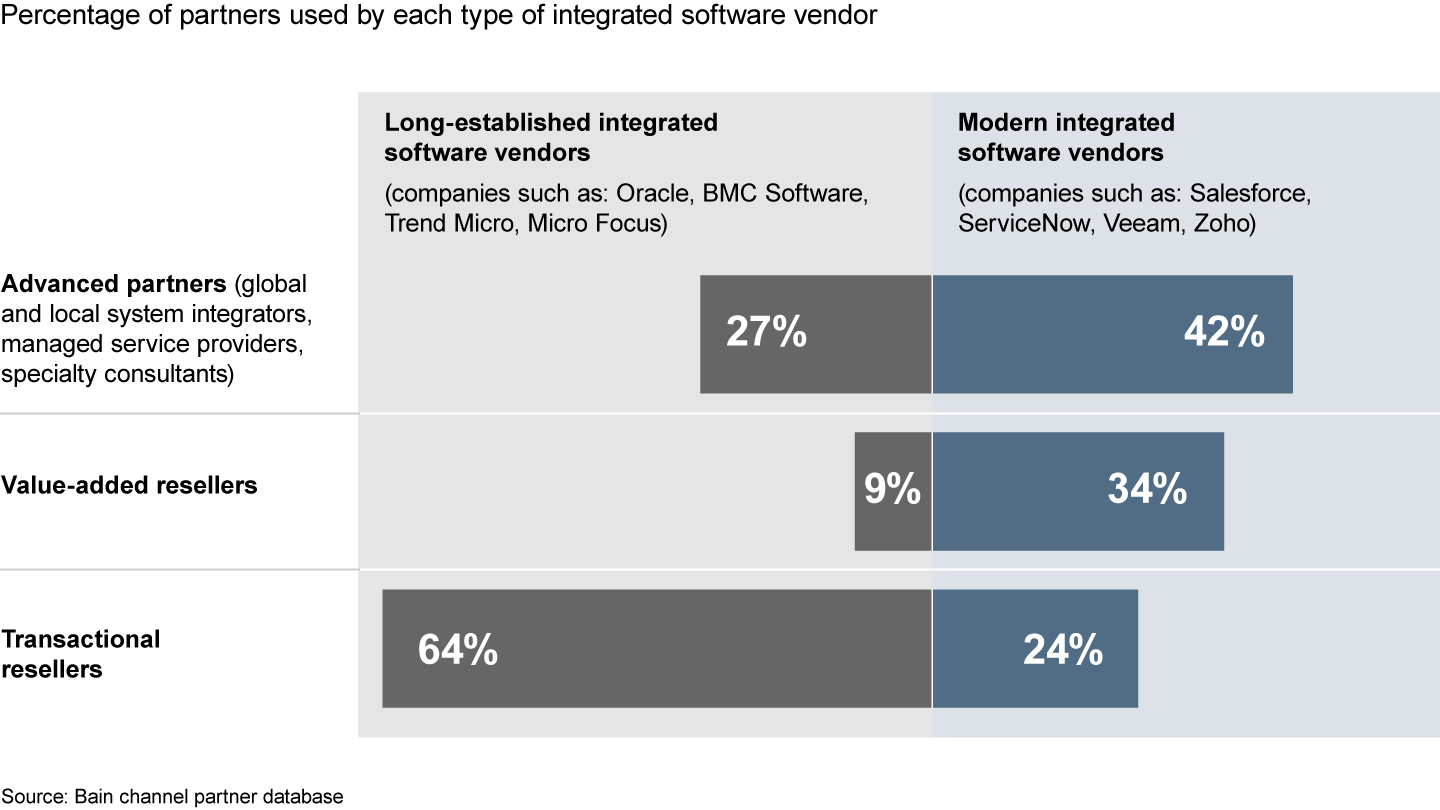Etude

En Bref
- While B2B suppliers have been reconfiguring their sales operations to adapt to the pandemic, few have extended those actions to their channel partners, which tend to be smaller and more vulnerable to economic shock.
- Commercial leaders can act now to protect their strategic partners with a series of no-regrets moves, such as providing access to capital, discounts, new work-at-home solutions, and special training and certification.
- Suppliers should overinvest in partners that will likely make strong contributions to future growth, such as those building cutting-edge capabilities.
By this point, most companies in business-to-business markets have taken urgent steps to protect their employees’ health and financial well-being during the coronavirus pandemic. They are also working with their salesforces to secure revenues by dissecting account plans and pipelines, undertaking scenario plans, and installing revenue “win rooms.”

Macro Surveillance Platform
For more detail on the business implications of coronavirus from Bain’s Macro Trends Group, log on to the Macro Surveillance Platform. Learn more about the platform >
Many B2B suppliers, however, have yet to extend those actions to their channel partners, despite the turmoil and economic uncertainty many are facing. This represents a major opportunity for vendors to build stronger relationships with key partners, which will be critical in efforts to emerge from the crisis in decent shape.
Bain & Company’s proprietary database of global technology channel partners tracks the activity of over 300,000 value-added resellers, solution providers, system integrators and distributors. Some 64% of them are either emerging or small firms based on annual revenue―a group that often is most vulnerable to sustained financial shocks (see Figure 1). Bain’s Macro Trends Group projects that 1.9 million small and medium-sized businesses, or 23% of all US businesses, may permanently close if social distancing policies remain in effect for two months; 4.6 million, or more than half of US businesses, could shut if social distancing continues for a full year.


Although the shift to working at home has generally boosted business across the technology sector and lifted activity for many channel partners in the early phases of the economic slowdown, this tailwind will likely fade soon. A recent Bain survey of CIOs indicated that 40% of businesses have already made formal cuts to IT spending and anticipate lower spending for the rest of the year, and the share of businesses making cuts is rising.
Many of the same principles that commercial executives have used to guide their approach to employees apply to partners as well: lead with empathy, provide transparency where possible and communicate frequently. After all, a company’s channel partners serve as an extension of its salesforce.
No-regrets moves
Commercial leaders can act now to identify and protect their most vulnerable partners, and secure their overall partner ecosystem, with a series of no-regrets moves.
- Check partners’ health. Assess the health of all channel partners, with a particular focus on the most strategic ones. Make sure their account plans are up to date. Identify vulnerable partners and evaluate where to invest in order to secure your own revenue base. Be on the lookout for partner consolidation, which may require creative negotiations on your part. Run scenarios on the timing and shape of the recession and recovery, including the worst case.
- Redefine the partner engagement strategy. Review and update your annual calendar of partner interactions, from partner advisory boards to sales kickoffs to business reviews. Where necessary, reschedule or reimagine them as virtual interactions. Take the opportunity to accelerate adoption of your digital tools (such as configurators and order management), which not only expedites the sales process but also can reduce costs and manual tasks while increasing partner stickiness.
- Fill technological gaps in the channel ecosystem. Identify partners with the capabilities that you will most need in the future, such as cloud, Internet of Things, edge computing and artificial intelligence. More advanced integrated software vendors tend toward greater use of partners with such advanced capabilities, compared with traditional vendors (see Figure 2). Make your channel ecosystem a valuable proposition for customers, one that will maximize service extensions and software renewals.
- Establish which immediate actions to take. While this is not the time to reinvent the whole channel program, partners will appreciate targeted adjustments that help them weather the storm. Tailor your actions based on the role a partner plays.


A few questions can guide your approach:
- How can we use our access to capital or stronger balance sheet to protect our partners? Consider offering access to working capital programs, lower financing requirements, extended payment terms or targeted discounts. For example, Lenovo recently launched a stimulus package that includes payment to partners every 30 days, and it extended financing payments by partners by 30 days. Intel is giving partners a 10% discount on product vouchers redeemed with points.
- How can we direct our partners on what is most relevant today? Focus partners on specific pandemic-relevant offerings, trainings and collateral. Lenovo, for instance, is debuting work-from-home bundles available for resale. Provide partners with information on product usage and your internal customer health scores, along with relevant sales plays to protect the installed base and pursue new customers. Shift market and business development funds from areas of depressed demand toward surges in demand and the most attractive long-term partners.
- How can we convince partners to invest time and capacity in our business? Consider offering free or discounted partner enablement, certifications and training. Microsoft is enabling partners with at-home solutions certification, along with waiving select training fees.
- What can we do to become a source of stability and predictability for partners? Reevaluate tier thresholds, tier qualification periods, and expiration extensions of competencies and points. Intel is extending the time to earn tiers from 12 months to 18 months.
Partners won’t magically make a market, of course. B2B companies will need to provide resources to their partners’ sales teams, generate demand and ramp up co-selling. Anticipating the longer-term effects of the pandemic, companies will want to overinvest in partners that will likely make strong contributions to future growth. This group might include partners fluent in enablement technologies such as cloud and X as a service, or that have strong capabilities in analytics and app development. Almost half of the partners building cutting-edge capabilities are small or medium-sized businesses. Offering support to them today will be remembered in the future.
Partners may worry about dramatic shifts to their economics that could result from short-term changes to vendor program structures and incentives, even those intended to help partners survive. So it’s critical for companies to tie any changes to their strategy and to communicate the change and anticipated effects with partners. Commercial leaders that equip their channel partners to thrive during the pandemic stand a better chance of maintaining growth during the downturn and well into the recovery.

Coronavirus
The global Covid-19 pandemic has extracted a terrible human toll and spurred sweeping changes in the world economy. Across industries, executives have begun reassessing their strategies and repositioning their companies to thrive now and in the world beyond coronavirus.